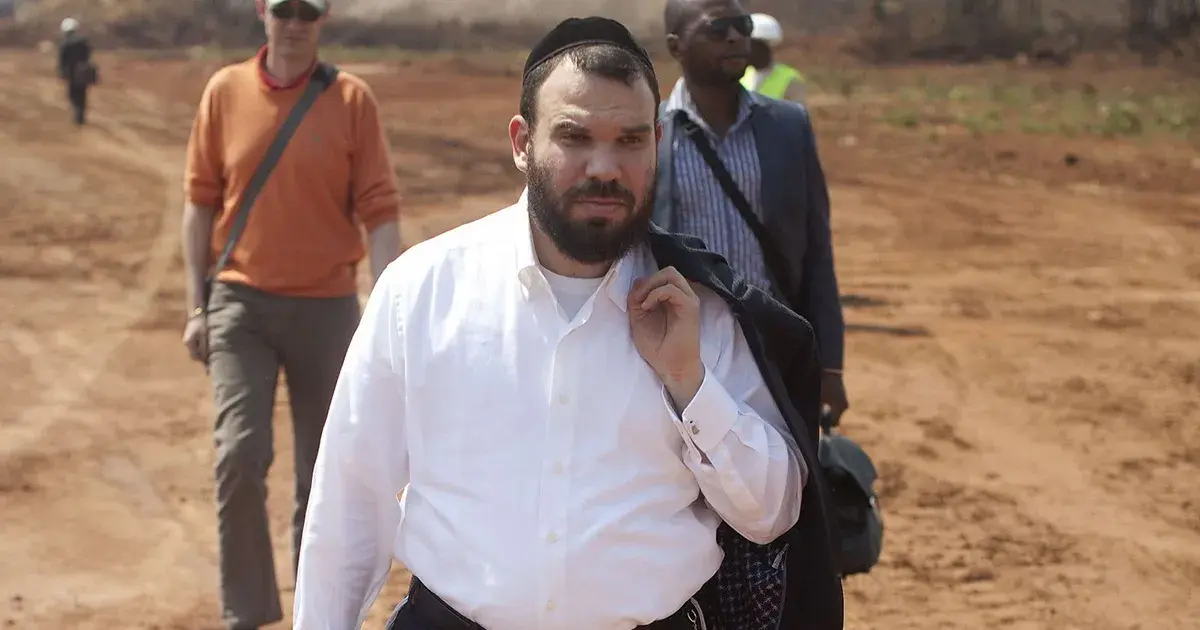Explore Our Bill Payment Services:

- Finance
- Net-Worth/Wealth
- Congo
Top 10 Richest People In Democratic Republic Of Congo
Habari, rafiki yangu? Let’s sit under the shade, sip our chai, and dive deep into the stories of Congolese people whose hustle built empires. These are not just names and numbers—they are legacies, woven into our soil and spirit. Join me, as I share their journeys—the triumphs, the industries, the impact.
1. Dan Gertler – The Controversial Mining Magnate
Though not Congolese by birth, Dan Gertler towers among the wealth holders in Congo, making an estimated US $1.5 billion as of June 2025. His fortune grew through mining deals in the DRC—most notably selling stakes for hundreds of millions. His name often whispers through corridors of power, tinted in controversy, even landing on U.S. sanctions lists. He embodies how mining and politics intertwine in the fabric of our economy.
2. Claude Wilfrid “Willy” Etoka – The Oil Trader
Now, here’s a man who commands attention. CEO of SARPD Oil, he controls a significant share of oil trading in Central Africa, with wealth estimated at $500 million. Despite whispers of political ties and controversies over banking ties due to his closeness with the presidency, he stands as a bold symbol of Congolese enterprise in energy.
3. Albert Yuma Mulimbi – The Mining Strategist
Alungu (Mr.) Yuma, the economist and former chairman of state mining giant Gécamines, is a formidable force in DRC business. While estimates of his wealth vary, his influence in mining, textiles, uniform manufacturing, and business federations speaks volumes . Though exact numbers are elusive, he sits within our rich tapestry due to strategic control over national resources.
4. Moïse Katumbi – The Politician-Entrepreneur
Moïse is like our own Elon Musk, but rooted in Congolese soil. Born of mixed heritage, he built a thriving business empire spanning mining, transport, agriculture, real estate—and even football with TP Mazembe—while serving as Katanga’s governor. His wealth may not be quantified in glossy numbers, but his reach and reputation make him undeniably one of Congo's wealthiest.
5. George Arthur Forrest – The Industrial Titan
Forrest may walk with a Belgian passport, but his roots in Lubumbashi and legacy in DRC are unmistakable. Owner of the diversified Forrest Group—spanning mining, construction, cement, energy, finance, and ranching—his operations support thousands, and he remains a towering industrial figure.
6. Robert Levy – The Banker and Builder
In Kinshasa, you see the footprint of Trust Merchant Bank (TMB): vibrant banking, agriculture, logistics—this is Robert Levy’s doing. With an estimated net worth of around $180 million, he is a banker who built not just wealth, but business infrastructure in our land.
7. Raymond Ibata – The Insurance Tycoon
Insurance isn’t always talked about, but when it’s ARC—Assurances et Réassurances du Congo—you know Raymond Ibata’s name echoes. Founder of the country's largest insurance firm (more than half the market share), his stake brought him around $200 million.
8. Cyrille Mutombo – The Gold Mining Executive
Oversee Barrick Gold’s Kibali Gold Mine? That is Cyrille Mutombo, a man whose influence spans mining, community development, and responsible practices. Estimated net worth around $150 million, he carries both wealth and conscience as he helps shape Congo’s gold industry.
9. Eric Kalala Nsantu – The Logistics & Cobalt Leader
Eric Kalala bridges power and mobility—bossing Bolloré Transport & Logistics while leading the world's largest cobalt producer, EGC. With wealth estimated around $80 million, he stands where logistics, mining, and national development connect.
10. Arthur Kalala Katalayi – The Young Consultant & Voice of Mining
Last, but not least, is Arthur, nicknamed “The Katalyst”. As a consultant, podcast host in mining, and former advisor at Gécamines, his influence is intellectual, strategic, and rising . Though his wealth numbers aren’t high on paper, his impact in shaping mining discourse makes his inclusion meaningful.
Reflecting on the Congolese Hustle
My dear friend—these ten stories are more than figures. They are narratives of ambition, negotiation, heritage, and sometimes, controversy. Congo’s natural wealth—minerals, oil, agriculture—built these fortunes. But where there’s resource, there’s politics, power, and sometimes injustice.
Some, like Dan Gertler or Etoka, trail shadows of critique despite their economic prominence. Others—Moïse, Levy, Ibata, Mutombo, Kalala—they are local builders forging infrastructure, institutions, and opportunity. Forrest reflects how historical roots and scale can mesh into vast industrial legacies.
In every one of these, I find a lesson: the DRC's wealth is more than numbers—it’s about ecosystems of influence, the lines between public good and private gain, and the potential for change if our voices and leadership steer the narrative.
Conclusion
Rafiki, what have we learned? Wealth in Congo is complex. It’s raw, rugged, and often tied to the land's deepest veins. But these people show that Congolese and Congolese-linked ambition can shape industries—from mines to banks to football clubs.
So here’s my parting note: whether you're building dreams in agriculture, tech, culture, or service—you hold power within you, shaped by our soil and spirit. Keep hustling, keep dreaming, and one day someone else will be telling story of your legacy.




